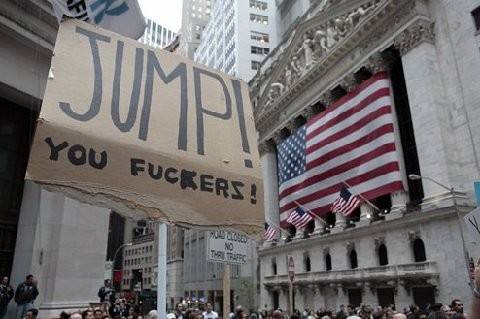Zoomie1980
Senior Member
- Jan 16, 2008
- 1,658
- 128
- 48
and who manipulates them ?
No one.
Follow along with the video below to see how to install our site as a web app on your home screen.

Note: This feature currently requires accessing the site using the built-in Safari browser.
and who manipulates them ?
The markets exist to make money. As long as they can get away with making money, they will do whatever it takes without a care for what happens after they make their fortune.I think the market learns and progresses.
morning!The markets exist to make money. As long as they can get away with making money, they will do whatever it takes without a care for what happens after they make their fortune.
You are aware that one of the main reasons the south seceded was because of unfair tariffs that benefitted the north and hurt them, right? That is why tariffs were prohibited in the Confederate Constitution. Protectionism, as I've said before, helps a few to the detriment of the rest of us.
- Forces the consumer to pay higher prices.
- Forces other industries to pay higher prices.
- Other nations will then impose retaliatory tariffs on our goods.
Need I go on?
Abe Lincoln was also a big proponent of suspending habeas corpus, ignoring the Constitution, waging war against civilians, removing all African-Americans from the United States, denying states' rights, etc...
Ah, did nasty old ABe take away slavers' right to own human beings?
What a bad man, eh?
The markets exist to make money. As long as they can get away with making money, they will do whatever it takes without a care for what happens after they make their fortune.
I was talking about the entire market. And notice, I didn't say useless.I'm not just talking about the stock market, Rav. I'm talking about the entire market. Everything. When you go buy a vibrator, for instance, you are part of the market.
You've got the whole "greed" thing distorting your thought process. Many investors are greedy, but the market as a whole need not be pidgeon holed as being useless simply because some take advantage of it through greed.
The markets exist to make money. As long as they can get away with making money, they will do whatever it takes without a care for what happens after they make their fortune.
The markets don't "make" anything. They are the medium in which money is exchanged for goods and services. Businesses make the money by USING the "market". Consumption creates a market, business feeds it.

heh, you are being silly. The markets exist to make money. And that isn't a bad thing because money makes the world go around. BUT, to pretend that what motivates the market isn't greed shows a deep misunderstanding of human nature.Thanks for taking care of my light work.
And Rav I realize you didn't actually say worthless, but if someone thinks the markets only exist to make money through greed, then it doesn't seem far fetched to conclude that they probably view it as less than necessary. Maybe not WORTHLESS, per se, but you don't seem to have a very favorable opinion of it with such a cynical viewpoint.
heh, you are being silly. The markets exist to make money. And that isn't a bad thing because money makes the world go around. BUT, to pretend that what motivates the market isn't greed shows a deep misunderstanding of human nature.
